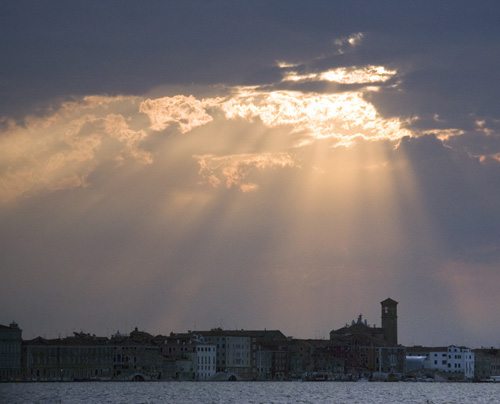We have a yearly holiday in this country, Thanksgiving, in which we are to give thanks for our blessings. It’s a nice tradition, and one in which people of all religions can partake.
Of course spiritual teachings encourage us to have gratitude all year round. We may even make a list, or create a “gratitude journal,” finding specific things to be thankful for each day.
But there is another kind of gratitude, one that doesn’t have to do with being grateful for “some thing” but grateful for this moment, this breath.
Spiritual teacher and author Eckhart Tolle bids us to become still, and acknowledge the presence in ourselves and in all things, a quiet honoring of all that is. If we choose, we can do this without saying anything at all. Or we may become inspired to create a poem, a song, a painting, a piece of music.
St. Francis of Assisi is said to have composed a song known as the Canticle of the Sun, praising all things of this world. Some say he composed it after he had already become blind, dictating the words to another. He was able to perceive the unity of all things, their brightness, through his mind’s eye. He praises Brother Sun, Sister Moon, Brother Wind, Sister Water, Brother Fire, Mother Earth, and even Sister Death.
In the Tibetan Buddhist tradition, all things are said to be made of five elements—similar to what St. Francis wrote about: Earth, Air, Water, Fire, Space. These elements form the basis of life.
Today and everyday, be still and reach beyond the thinking, conceptual mind. You can go beyond mental concepts, and you will receive a quiet perception of the presence that is within you, the source of your true power, the same power that sustains all of life, even unto death.
“If you go deeply into the present, gratitude arises spontaneously, even if it’s just gratitude for breathing, for the aliveness that you feel in your body. Gratitude is there when you acknowledge the aliveness of the present moment.”
“All the things that truly matter, beauty, love, creativity, joy and inner peace arise from beyond the mind.”
